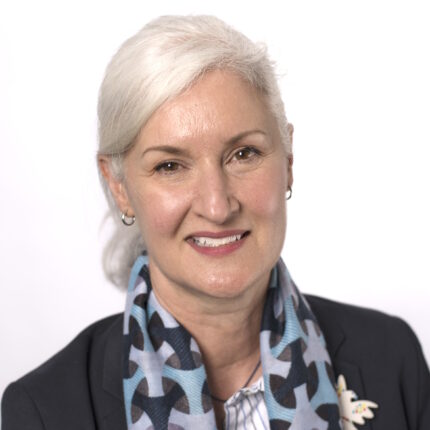The outcome of the distressing high court case between Natasha Abrahart’s family and University of Bristol raises issues for all universities about disabled student support.
Many will be looking to sign up to the Disabled Student Commitment as a way to effectively structure their disability action plan.
In particular the judge’s rejection of the university’s arguments over competence standard is likely to touch every course team in every institution. Colleagues might be aware that under the Equality Act the maintenance of competence standards is a justifiable reason for not adjusting teaching, learning or assessment to meet the needs of a disabled student. In this case, the judge found that the university had failed in its argument that “the assessment of a student’s ability to explain laboratory work orally, to defend it and to answer questions on it” was “a core competency of a professional scientist” and so not subject to the duty to make reasonable adjustments.
What is a competence standard?
A competence standard is an academic, medical or other standard applied for the purpose of determining whether or not a person has a particular level of competence or ability. They are often shown as outcomes in terms of skills, knowledge and behaviours that are an essential characteristic of a subject or professional expertise. Competence standards must be objectively justifiable, proportionate and relevant to the subject in question. More than that, they must be explicit and clearly published.
The interaction of competence standards and assessment is also key. Universities may not have to make adjustments to legitimate competence standards, but they are obligated to make adjustments to the assessment of competence standards. This is because universities must ensure that disabled students are not disadvantaged in demonstrating competency by the assessment method: to the process by which the competence standard is assessed. As the Bristol ruling shows us, assessment methods themselves are rarely genuine competence standards, except in practice- or performance-based subjects, and universities must therefore consider whether a reasonable adjustment could be implemented to some element of the process by which it assesses a competence standard.
However, evidence suggests that lecturers are frequently confused between learning outcomes, assessment methods and competence standards. The Arriving at Thriving report provided a number of examples where disabled students were left with uncertainty about whether their needs could be met. Worse still, this was often happening when students were in the middle of a course, and sometimes facing looming deadlines for course work that might disadvantage them.
The situation can be almost as stressful for lecturers who may be unsure if an adjustment can legitimately be made. Frustratingly, academics may not get clarity if they go back to foundational documents as only some Subject Benchmark Statements spell out subject competences, and only some PSRBs set clear professional competence standards.
Universities need to do two things. Alongside training staff on the rights of disabled students and reasonable adjustments, they also need to help course teams by structuring internal conversations about what makes for a legitimate competence. And then publishing this for students and applicants to see. While this work may seem daunting there are examples where it is happening. The University of Leeds is in the process of identifying and developing competence standards across 600 programmes as part of its ambitious 10-year Curriculum Redefined programme. Colleagues from academic departments, professional services, and programme design and development are working together to achieve this, recognising the important role defining competence has in creating an innovative, sustainable, and inclusive curriculum.
This sad case raises many issues. By requiring us to consider what makes for a valid competence standard it is a good outcome for disabled students and for academic staff who are often left uncertain and confused. The example of University of Leeds shows what can be done to set out a rigorous and constructive discussion. As a sector, we can learn from this example and start approaching competence with clarity and deliberation.















An important question is who gets to define legitimate. Bristol clearly believed it had sufficiently done so, only for the judge to reject the argument. The number of PRSBs who have been doing this successfully maybe be small, but the quality is what matters, and there my be lessons for other subject areas. But it does not resolve the legitimate argument. How will universities assure themselves of this in light of the ‘Bristol’ judgement lying as it seemed to, in the eye of the judicial beholder? Be interesting to hear how Leeds tackled the legitimate issue in re-defining its curriculum.
Perhaps there is a need for national consultation by subject area/specialism/CAH level to agree minimal competency standards. Such a process should engage all stakeholders, where necessary, ie employers, PSRB’s, academics. Positive outcomes in the contex of OfS registration conditions are a possible additional benefit?
This is an excellent idea – and it pretty much already happens in the form of the QAA subject benchmarks. These draw together representatives from across the sector, employers, and PSRBs to define what should be covered in a course in each subject area.
Surely its time for the PSBRs to also be central to the debate around diversifying assessments and link it reform in work practices. I advocate a call to return to the QAA benchmarks and liaise once again, but not only with University staff, but experts in field of developing positive narative landscapes around the strengths that accompany living with a disability. I suggest that colleagues working in HEI and students who have found the strategies to overcome the unfreedoms embedded within learning and working environments are essential for grounded research, but the Arriving at Thriving Report has outlined the countless ways in which HEI and QAA have proven incapable of the critical self reflection that is needed to move learning and workplaces forwards as safe environments for individuals living with disabilities. Surely the way forward is to include grass roots organisations disability charities such as DPAC in all discussions around making assessments safe rather than remain constrained by the underdefined catch all term ‘inclusion’.